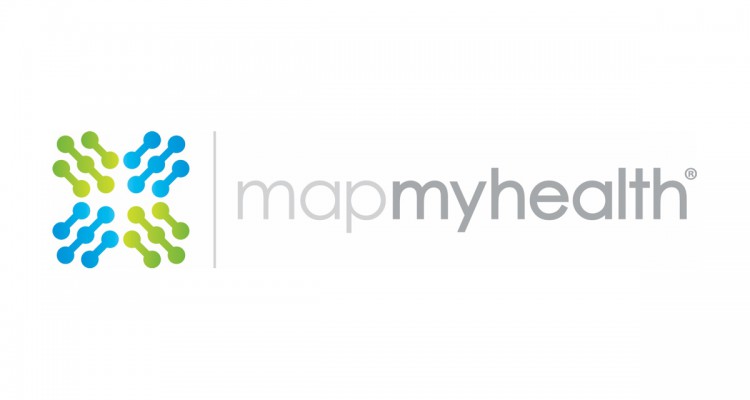 Dr Matthew Goodman is Founder of Mapmyhealth, a company providing innovative digital technologies to manage chronic conditions, including cancer and diabetes.
Dr Matthew Goodman is Founder of Mapmyhealth, a company providing innovative digital technologies to manage chronic conditions, including cancer and diabetes.
Mapmydiabetes is the only software-based support programme for type 2 diabetes endorsed by the National Institute of Clinical Excellence (NICE).
Dr Goodman worked for five years in the NHS as a surgical trainee. He left clinical practice to pursue a career in pharmaceutical medicine and joined Sanofi, a global pharmaceutical firm focused on developing medications and devices for diabetes. He soon moved to global positions at Novartis in Switzerland and the United States. In 2009 he returned to the United Kingdom to lead the Clinical Research programs of Prosidion – an Oxford-based biotechnology company – where he developed several cardiovascular and diabetes medicines that are still in use today. In 2011 he founded Mapmyhealth.
What is the purpose of Mapmydiabetes?
The purpose of Mapmydiabetes is to educate and inform people to take better care of themselves. The NHS has historically provided education sessions in a classroom environment. Mapmydiabetes is an adjunct or alternative to these sessions. It’s a lot broader than simply enabling an understanding of diabetes. Mapmydiabetes offers ways of: accessing data from NHS patient notes; setting goals and targets for self management; planning meals; planning exercise regimes; and so on.
How did you fund your idea?
We have funded through a combination of self-funding, family and friends and non-dilutive grant funding. Currently, there’s not much investment for early stage healthcare start-ups in the UK. Usually UK investors have to see a business is profitable before putting money in. The investment in health tech you read about in the newspapers is typically Silicon Valley investment. The attitude in the US tends to be far less risk averse.
In the UK, there’s an added challenge if your aim is to integrate with or try to sell to the NHS. If this is the case, you have to plan for not raising any money at all. This said, as an entrepreneur you will figure it out. Either get on a plane to California or accept there’s no money, and make a plan to do without!
Either get on a plane to California or accept there is no money, and make a plan to do without!
Can you explain your SHeRPa Implementation program that aims integrate your products into everyday patient care?
Getting medical products into the hands of patients is a key challenge faced by entrepreneurs in the health sector. If you have not developed a healthcare product or service before, you may be misguided to think that if you make a product that is “cooler” and/or easier to use, people will use it. However, the reality is doctors and patients are very reluctant to change the ways they do things. You need to think about how you’re supporting providers and patients alike. You also need to think about the complex chain of stakeholders and you need to convince and bring all these parties along with you.
The SHeRPa implementation programme is one thing that distinguishes us from the 1000s of diabetes apps on the app store and is the way we get our product into the hands of patients – it is a secret formula. One aspect is that we train practice nurses and GPs to prescribe Mapmydiabetes as part of usual care, it then becomes an ongoing service and collaboration between patient and GP surgery. At Mapmyhealth we have a background in healthcare – either we have worked in the NHS or for an organisation that feeds into the NHS – and that is the reason why I think we have been successful.
Sometimes people with chronic conditions are considered “hard to reach” in terms of their engagement with health resources. Mapmydiabetes targets those with type 2 diabetes, a chronic condition. How do you ensure Mapmydiabetes is used by those it’s made for?
Mapmydiabetes is designed for anyone diagnosed with type 2 diabetes. We focus more on those engaged with their illness but who won’t engage with the structured classroom programme approach, whether that be those working full-time, or with children who are unable to get away from work, or those who that just don’t want to sit in a classroom! For those who are truly reluctant to engage with their health, Mapmydiabetes is not necessarily for them.
Mapmydiabetes has a number of different partnerships with both private and public sector organisations. How did you secure these collaborations?
If you want to sell products to NHS, you’ll need all the help you can get because of the complexity of customer. This said, starting partnerships for no reason is not a good use of anyone’s time. The right partnership at the right moment, drawing on old contacts and formalising these connections is essential. A lot will depend on your network, but if your business is valuable then partnerships will not be hard to find to develop value around your own product and company.
Do you have advice on when not to form partnerships?
Be careful to protect IP and not give away too much without confidentiality agreements in place. Always do business with people you trust – no amount of paperwork will protect you when someone runs off with your idea. As a guide, do business with people who you put in paperwork with anyway but don’t feel you will need it!
Do business with people who you put in paperwork with anyway but don’t feel you will need it!
Would you recommend working in a corporate setting prior to setting up a business?
I find it difficult to see a way a doctor can start a business without an understanding of how business and the private sector work. The NHS, being publicly funded, works very differently. I would definitely recommend work in a private organisation, not necessarily pharma, but any company that works by making profit on products and services. It is perhaps even more beneficial to work for a smaller organisation. I think that for a doctor to strike out directly into the private sector and be successful may be a step too far. From my experience, doctors that have been successful in starting businesses tend to have spent time in a non-healthcare setting whether that be a management consulting firm, pharma or banking.
Mapmyhealth is UK-based at the moment, do you have any plans to expand the concept globally?
With respect to global expansion, yes absolutely. We plan to develop in the Middle East. They have very similar problems to the UK. The US health market is too fragmented, and I don’t consider it a sensible step unless you have a bottomless pit of money to throw at it, which we don’t. We also hope to expand our product area. We are now delivering obesity and chronic obstructive pulmonary disease services and are expanding into dermatology and type 1 diabetes.
What are your predictions for future trends in healthcare delivery?
The major strain on the health service at the moment and for the foreseeable future is not acute illness that can be managed through short admissions, but long term conditions – depression, heart failure, chronic obstructive pulmonary disease etc – none of which the NHS is equipped to deal with. The best way to tackle chronic illness is to improve patient engagement and increase responsibility of patients to self manage their conditions. We need to support patients to enable this and we have no better tools at our disposal than tech to achieve this. I have my doubts that the current health economy can operate in the same way when it is historically set up to manage acute illnesses.
Finally, are there any UK start-ups that you’re particularly excited by?
This is a difficult question. I don’t do networking and I don’t look sideways at what others are doing. It is fine to be a spectator to an industry if you are a journalist or blogger, but as a player on the pitch there is no purpose watching what the other players doing – it’s not healthy. My advice is to spend your energy on what you are doing and every inch of energy I expend is directed at my business and its products.
That said, a company that has recently caught my eye as a vegan is called Impossible Foods, who are trying to develop non-animal based meat that is indistinguishable from normal beef – the Impossible Burger. This talks to what the customer actually wants. As a vegan I don’t want a veggie quorn burger that doesn’t taste like the meat version it imitates, but something that tastes like meat but isn’t!
My advice is to spend your energy on what you are doing and every inch of energy I expend is directed at my business and its products.

